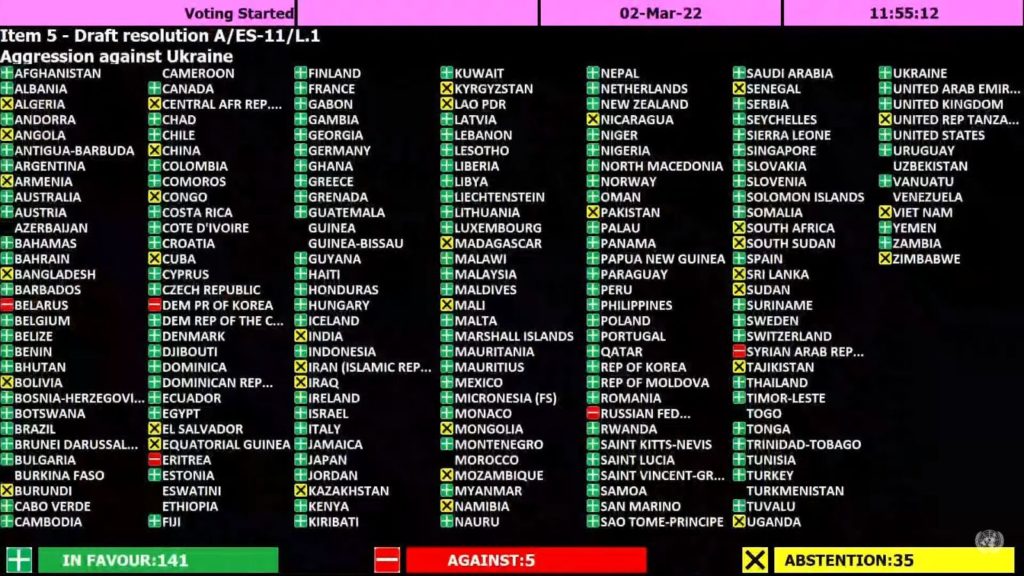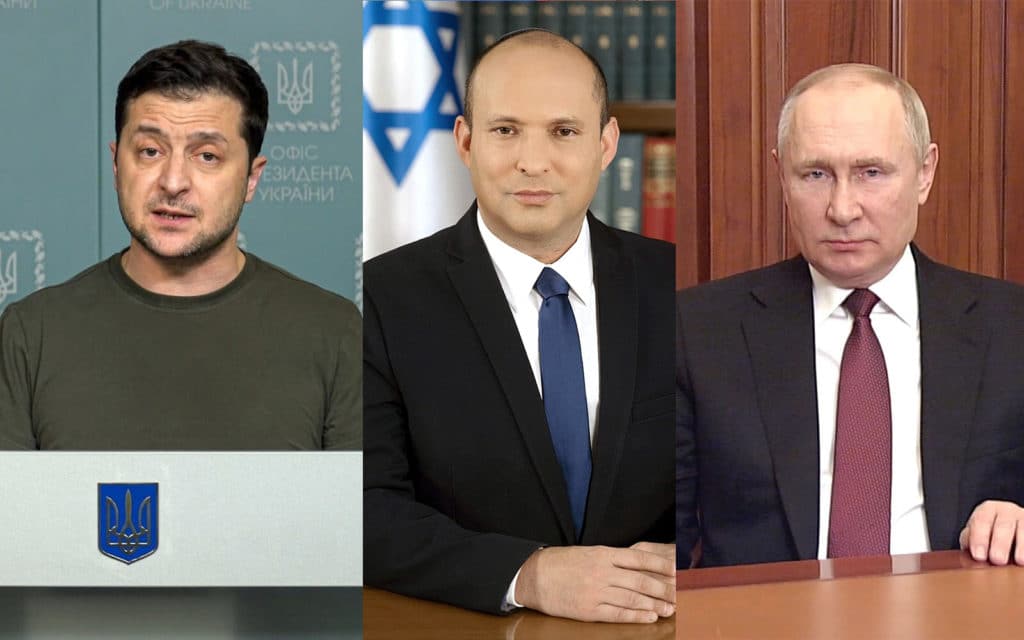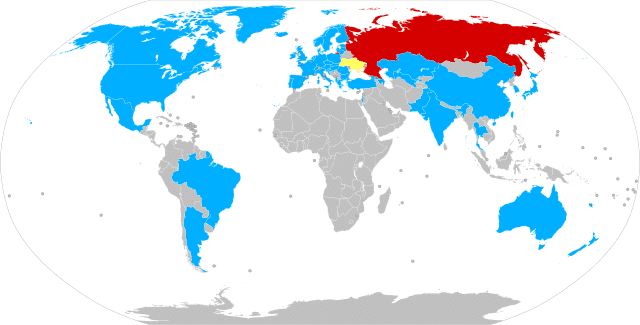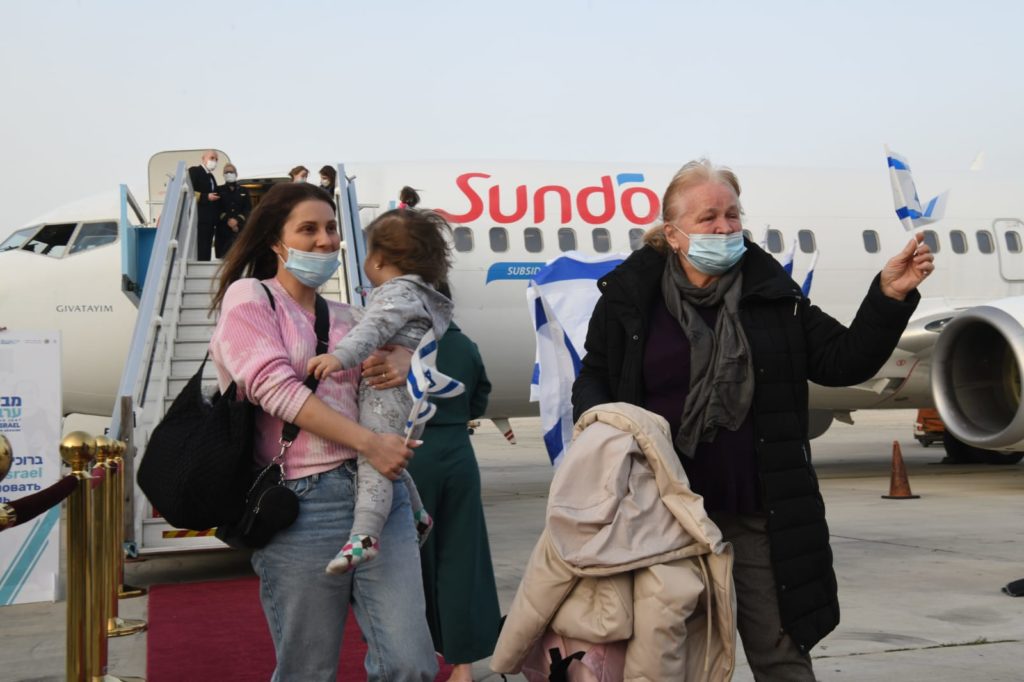
There is an increased interest in what Israel is doing to help Ukraine fight off the Russian invasion and the perception (based on social media posts and recent Google search data) seems to be that the Jewish state isn’t doing enough or anything at all to help.
Israel fails to stand up for Ukraine. Reluctant to impose sanctions on Russia. Still allowing flights from Russia but ended visa-free travel for Ukrainians. Stayed silent after Russian airstrike near Babi Yar memorial, where German Nazis killed tens of thousands of Jews in WW2.
— Andrew Neil (@afneil) March 22, 2022
No, @Newsweek. Israel voted to condemn the invasion at the UN.
— (((Emanuel Miller))) 🌻 (@emanumiller) March 22, 2022
There's enough malicious disinformation out there as it is. It's really tiring to have to point out the facts to major news organisations who really should know better. pic.twitter.com/TG0baOjOQd
So what is Israel doing to help Ukraine and are the pundits correct in saying that Israel is sitting the war out?
Repeated condemnations

The Israeli government has repeatedly condemned Russia’s invasion of Ukraine and voted in favor of the United Nations condemnation in which 35 countries abstained (including China and India) and five voted against: Belarus, North Korea, Eritrea and Syria. Israel’s vote to condemn was met with criticism by Russia, with the Russian ambassador to Israel reportedly saying that they were “very disappointed by your position at the UN.”
Israel’s Foreign Minister Yair Lapid doubled-down on the condemnation saying during a meeting with U.S. Secretary of State Antony Blinken: “We have condemned the Russian invasion, and we still do … and Israel is a partner in the global effort to make sure and verify that this war must be stopped.”
Lapid: We condemn the strike on the Jewish cemetary next to the memorial for the Holocaust of the Jews in Kyiv and the Jewish People in Babyn Yar. We call to respect the site…We express our sorrow at the loss of human life.
— Lahav Harkov (@LahavHarkov) March 1, 2022
After the bombing of the Babyn Yar Memorial Israel was also quick to condemn Russia and pledged to pay to rebuild.
Sanctions
In our call, FM @yairlapid assured me Israel won’t be the route for Russia to bypass sanctions. Grateful for Israel’s mediation efforts and humanitarian aid. We discussed ways of ending the war in Ukraine. Agreed that the rights of Ukrainians arriving in Israel will be respected.
— Dmytro Kuleba (@DmytroKuleba) March 15, 2022
Israel has implemented some but not all economic sanctions against Russia– despite this, Israel’s foreign minister has pledged that the country would not be used to funnel Russian money.
“Israel will not be a route to bypass sanctions imposed on Russia by the United States and other Western countries,” Lapid said during a meeting in Slovakia.
“The Ministry of Foreign Affairs is coordinating the issue together with partners including the Bank of Israel, the Finance Ministry, the Economy Ministry, the Airports Authority, the Energy Ministry, and others,” he added.
It seems that the government’s actions are working. Weeks after Russian oligarch Roman Abramovich made an eight-figure donation (estimated to be around $3 million) to the Yad Vashem Holocaust Museum (the donation was made after the Russian invasion of Ukraine) officials there announced that they were returning the money.
Complicating matters is an Israeli law which states sanctions can only be imposed on a country designated as an enemy state. Currently Russia is not officially labeled as such and it is unlikely that this will happen due to ongoing military coordination in neighboring Syria (see “Diplomacy” below).
Diplomacy

Israel is taking a leading role in diplomatic efforts to broker a cease fire between Russia and Ukraine acting on behalf of the Ukrainian president.
Israeli Prime Minister Naftali Bennett has taken on a “messenger” or intermediary role between Ukraine and Russia, communicating proposals on behalf of the two countries. It seems Bennett is the only world leader who has spoken directly to both Russian President Vladimir Putin and Ukrainian President Volodymyr Zelensky. The Israeli prime minister even made the rare decision to travel on Shabbat (Bennett is Orthodox) to meet face to face with Putin.
In his speech to Israel’s parliament, or Knesset, Zelensky called on Israel to do more to help Ukraine. His appeal was similar in nature to his talks to other foreign governments including the United Kingdom, the United States and Canada.
Late last night, hours after his speech, Zelensky took a different tack, posting on his telegram: “I appreciate the efforts of PM Bennett. Of course Israel has its interests to defend its citizens. We understand this. Bennett is trying to find a way to hold talks in Jerusalem 1/ https://t.co/fN5xRCFR1U
— Lahav Harkov (@LahavHarkov) March 21, 2022
Following his speech Zelensky announced new diplomatic movements courtesy of Israel’s efforts.
“The prime minister of Israel, Mr. Bennett is trying to find a way of holding talks. And we are grateful for this,” said Zelensky. “We are grateful for his efforts, so that sooner or later we will begin to have talks with Russia, possibly in Jerusalem.”
The United States also reached out to Israel to use its diplomatic channels to lobby its Arab neighbors to vote for the UN condemnation of Russia’s invasion.
This is a tough situation for Israel, which has Russian troops on its northern border in neighboring Syria supporting embattled President Bashar al-Assad. For years Russia has allowed Israel to carry out attacks on targets linked to terrorist and militant groups.
“We have a kind of border with Russia,” Lapid said right before the invasion, calling Russia “the important force” in Syria and adding that Israel was in “a bit of a Baltic situation” because of this. The foreign minister was referring to Balkanization, which is “the fragmentation of a larger region or state into smaller regions or states, which may be hostile or uncooperative with one another.”
Humanitarian Aid

Israel has set up a multi-million dollar field hospital inside Ukraine and is staffing it with medical workers from across Israel.
The #Israeli Field hospital in #Ukraine is installed today after equipment was transferred via #Poland. Proud of my colleagues in @MASHAVisrael @IsraelinUkraine & our dear staff @IsraelinPoland for making this happen!
— Amb. Yacov Livne 🇮🇱 (@YacovLivne) March 19, 2022
Thank you @MSZ_RP for the excellent cooperation! pic.twitter.com/IcklRmeXCk
On top of this, Israel has shipped several thousand tons of aid into the region and numerous Jewish and Israeli agencies are operating in Ukraine or along its borders. The organizations and government agencies are providing numerous services including transport out of Ukraine, medical care and even medical clowns.
Looks like some of the guys are @UnitedHatzalah volunteers (orange vest 20 seconds in and clown with Israeli flag credentials). Glad to see that they're spreading some cheer during these dark days. https://t.co/oonFwi1MnK
— Johnny Kunza (@johnkunza) March 13, 2022
Refugee resettlement

Israel is accepting thousands of refugees (both Jewish and non-Jewish) and has waived visa requirements for Ukrainian citizens. In fact, Israel has taken in more refugees than any other country which doesn’t share a border with Ukraine. In contrast, the United States and the United Kingdom have not accepted any Ukrainian refugees en masse. That’s not to say that there hasn’t been controversy over the government’s decision to allow so many people in.
Military assistance
At the moment Israel is only providing non-lethal aid to Ukraine (similar to other countries such as New Zealand and Ireland) and there has been a lot of speculation about why Israel has not allowed the Iron Dome to be deployed in Ukraine.
Regarding the Iron Dome, currently it only works against rockets in tight population areas and not against sophisticated ballistic missiles like the ones the Russians are using in Ukraine.
Despite increasingly vocal calls for Jerusalem to provide Kyiv with missile defense technology, experts believe that logistical and technological limitations mean that Israel’s Iron Dome would likely provide little practical benefit to Ukrainehttps://t.co/yWdhRI9wBl
— Haaretz.com (@haaretzcom) March 22, 2022
Most of the debate in Israel surrounding sending lethal aid to Ukraine is focused on what Russia would do in retaliation.
“Ultimately, can Israel risk antagonizing Russia in Syria, right on Israel’s borders? Could that lead to Hezbollah’s triumph and Iran’s entrenchment, if Israel loses its flight and strike privileges over Syria?” wrote Dahlia Scheindlin in an opinion piece for Haaretz.
Originally Published Mar 23, 2022 12:02AM EDT


